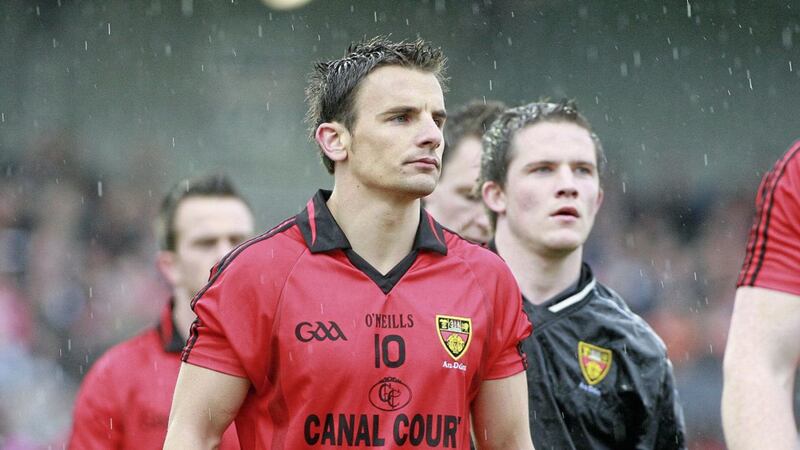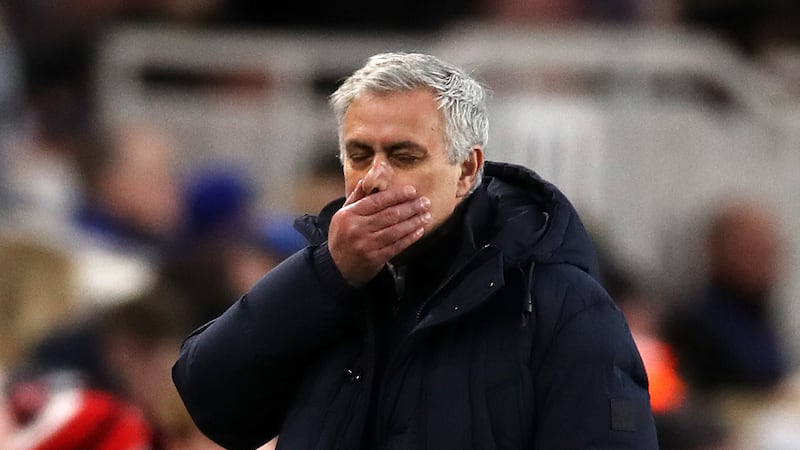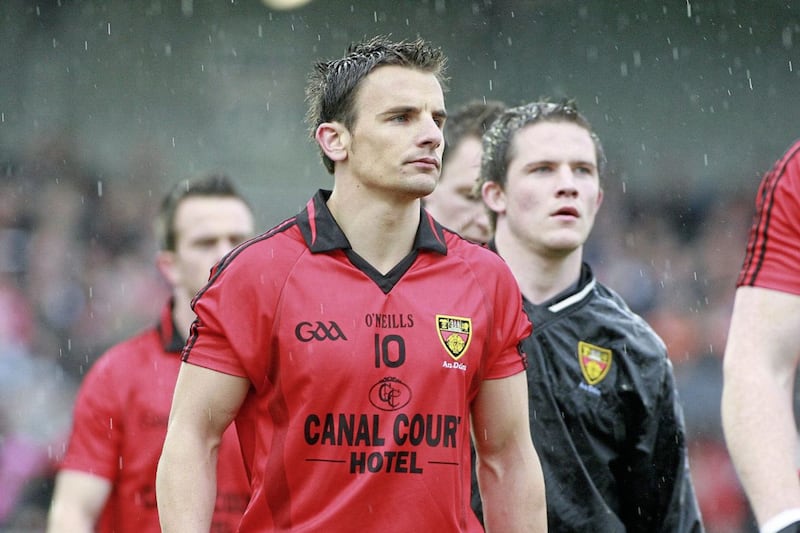Regrets, I’ve had a few;
But then again, too few to mention
Iconic lines from one of Frank Sinatra’s many great songs.
Ol’ Blue Eyes had a point.
Everyone has regrets – I don’t care who you are or what you have done.
I guess it’s the way you deal with them, how you learn from them and whether you can live with those regrets and come out of it a better person.
In sport, who doesn’t have them?
The experience of losing can perhaps build a stronger mentality but losses such as those Mayo have experienced over the years can leave everlasting scars.
Sport is the most cruel of things. Losing in sport is like losing in life.
When you lose something or someone dear to you in life, the grief is overwhelming at times.
There has been many sports people over the years who can, despite the turbulence of their personal life, been able to maintain a strong mentality within a sporting context and continue to deliver success.
However, it is evident that these individuals are few and far between.
History shows us there have been many more sports people who have suffered significant pain in their personal and sporting careers, some of it self-inflicted, which has affected sporting success.
Much of the downward spiral in Tiger Woods’ personal life can be traced to the death of his father. In turn his sporting career also took a nosedive.
We need to only look within our communities and parishes to those undergoing similar pain and anguish.
I am glad the issue of mental health is becoming much more discussed, coming much more into focus and increasingly taking more of a precedence to that of physical health in society.
I don’t think we have even scratched the surface in terms of anxiety and/or depression in Irish society.
Unfortunately the stigma remains.
Fortunately, in a Gaelic football context, individuals such as Antrim goalkeeper Chris Kerr have provided a fair amount of leadership regarding the issue.
He has put himself out there.
From my own personal experience, I am two people.
There is the Danny Hughes before my mum died and the Danny after she died.
I couldn’t and didn’t handle the death well.
I threw myself into football as if nothing changed.
But it had.
I almost chased success and winning even more in grief, a way of lifting my spirit out of the gloom.
Anger drove me to such an extent that my body and mind pushed back with injuries.
I wasn’t trying to win for me any more. I was trying to win, in my head, to make mum proud.
In quiet moments in conversation with my dad and my mum’s family, we questioned life and why cancer ripped our family apart.
Why me? Why us?
A vicious and ferocious circle, of regret, anger, sorrow.
I kept trying to beat cancer long after mum’s eventual death, trying to take some kind of win from this experience and, maybe in my own mind, have something to dedicate success to.
That didn’t go well.
At school (I was an ’80s and ’90s kid) we were taught and sold that academic intelligence was the most important element of learning. And in a grammar school this was important.
Thankfully, now it appears that preparing emotionally for life is an increasingly important area of focus in schools and in the GAA.
In hindsight I think I was at times an anxious player.
It was really debilitating in my teens as I worried constantly about being taken off.
The vicious circle meant that you almost wished misfortune on yourself as a result.
I was sick as a dog for two days leading up to a Dalton Cup final with my school Abbey CBS, Newry. Thankfully the final went well and we won but things were different a year later.
I remember winning the Corn na nÓg in my third year, beating our local rivals St Colman’s in the final before a packed-out Pairc Esler.
I missed the celebrations on the field as my dad has taken me off in the second half of the game.
I went to the changing rooms and cried as I hadn’t played well. It was embarrassing stuff at the time.
The week before the final I was in panic mode, not sleeping and worrying constantly.
Over the years as I grew stronger and matured, the fear of playing badly or being taken off was better managed but never quite eradicated.
I always considered my consistency as my strongest asset and this is attributed to one thing – fear.
Fear that should I drop my standards or relax I would experience failure or rejection, and that this anxiety would return and cripple performance.
It is only in later years, years too late I might add, that from an emotional perspective I have learned to not give a damn.
I have learned how to better control my emotions.
There are events which are controllable and events which are uncontrollable in life.
You can prepare physically for anything but if you can’t control your emotions, the physical aspect of preparation is pretty worthless.
So far in life, I have discovered that we cannot control everything.
At times sport, just like death, is one of those uncontrollable events.
It is important to realise that death can come in many forms.
It may be sudden, it may be over a long period of time and in the true sense of death this is the loss of a loved one or friend.
Death can also relate to a loss of one’s identity and the loss of a career or way of life.
It can bring fear, anger, suffering, regret.
It is emotional, it is physical.
It is in sport, gaelic football and hurling, it is in our communities, our GAA clubs and in our schools.
It is in our houses and next door.
I had never prepared for this inevitability which happens when we lose loved ones.
But I also never properly prepared for life after inter-county football from an emotional perspective – another form of grief.
A loss of identity.
I have learned that, emotionally, life is suffering – the first noble truth of Buddhism.
I regret not learning this much younger in sport and in life.


